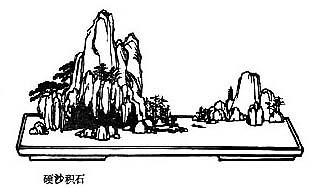孫
子
兵
法
Sun Zi 
 – The Art of War
– The Art of War
Chinese strategy explained : know yourself and the ennemy, use deception, spies, and "win with ease". Tr. Giles (en, annotated) and Amiot (fr).
Variation In Tactics
The heading means literally "The Nine Variations," but as Sun Tzu does not appear to enumerate these, and as, indeed, he has already told us (V SS. 6-11) that such deflections from the ordinary course are practically innumerable, we have little option but to follow Wang Hsi, who says that "Nine" stands for an indefinitely large number. "All it means is that in warfare we ought to very our tactics to the utmost degree... I do not know what Ts`ao Kung makes these Nine Variations out to be, but it has been suggested that they are connected with the Nine Situations" - of chapt. XI. This is the view adopted by Chang Yu. The only other alternative is to suppose that something has been lost–a supposition to which the unusual shortness of the chapter lends some weight.
Sunzi VIII. 4.
The general who thoroughly understands the advantages that accompany variation of tactics knows how to handle his troops.
The general who does not understand these, may be well acquainted with the configuration of the country, yet he will not be able to turn his knowledge to practical account.1
So, the student of war who is unversed in the art of war of varying his plans, even though he be acquainted with the Five Advantages, will fail to make the best use of his men.2
Giles VIII.4,5,6.
Un grand général doit savoir l'art des changements. S'il s'en tient à une connaissance vague de certains principes, à une application routinière des règles de l'art, si ses méthodes de commandement sont dépourvues de souplesse, s'il examine les situations conformément à quelques schémas, s'il prend ses résolutions d'une manière mécanique, il ne mérite pas de commander. Un général est un homme qui, par le rang qu'il occupe, se trouve au-dessus d'une multitude d'autres hommes ; il faut par conséquent qu'il sache gouverner les hommes ; il faut qu'il sache les conduire ; il faut qu'il soit véritablement au-dessus d'eux, non pas seulement par sa dignité, mais par son esprit, par son savoir, par sa capacité, par sa conduite, par sa fermeté, par son courage et par ses vertus.
Amiot

The Art of War – Sun Zi VIII. 4. – Chinese on/off – Français/English
Alias Sun Tzu, Sun Wu, Sun Tse, Sunzi Bingfa, Souen Tseu, Souen Wou, 孫武.
The Book of Odes, The Analects, Great Learning, Doctrine of the Mean, Three-characters book, The Book of Changes, The Way and its Power, 300 Tang Poems, The Art of War, Thirty-Six Strategies
Welcome, help, notes, introduction, table.
Index – Contact – Top
